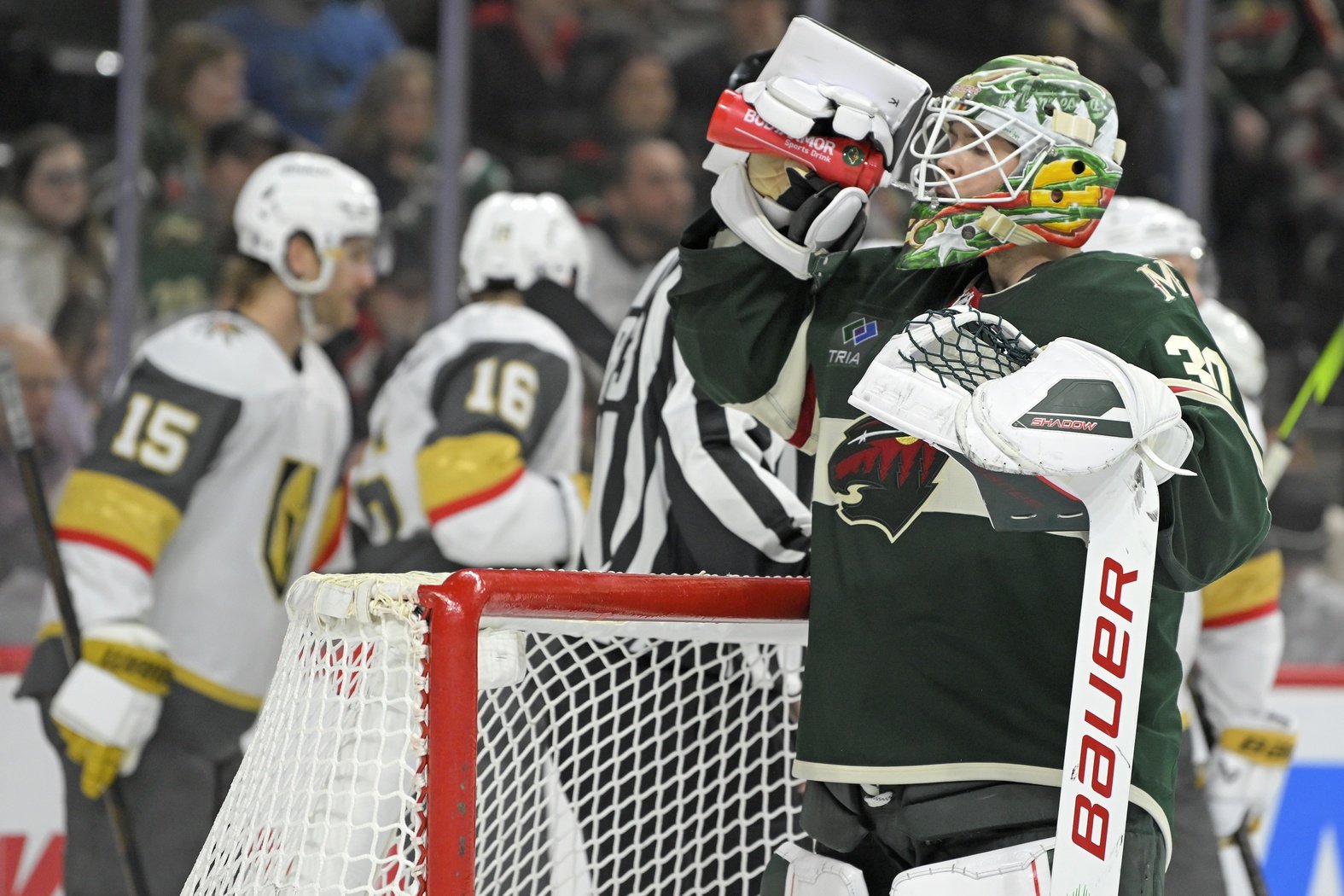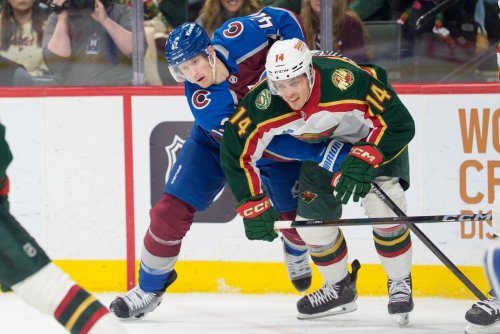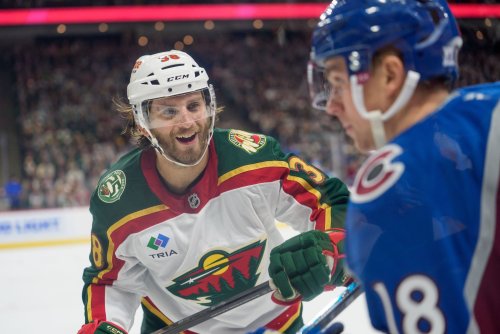
Minnesota Wild fans have repeatedly seen the Wild’s penalty kill give up goals in the biggest moments. In a league where special teams win championships, the Wild have faltered against the best Western Conference teams in the postseason.
In 2022-23 and 2021-22, the Wild’s last two trips to the playoffs, the team has had the worst postseason PK% in the franchise's history with 62.5% and 69.2%, respectively. The awful penalty kill and average powerplay success have only earned the team four playoff wins in three years, which is not a recipe for success.
Despite allowing goals on 30% of their penalty kills, the 2024-25 Wild are winning at an unprecedented rate. Still, they have some of the worst special teams stats in the league. So, can the Wild be considered a legitimate contender in the Western Conference?
In the last five games, the Wild allowed six shorthanded and 12 power-play goals (PPG) in their previous 12. For context, they have only let in 22 PPG in 31 games this season.
So, what’s going wrong?
John Hynes seems to think they’re lacking attention to detail.
“We’re in situations where we pressure, and it’s a corner containment, and the other team comes out with the puck,” he said. “It’s the faceoff intensity, the pressure intensity, how we pressure, pressuring together, staying on pressure. All those little components.”
The Wild are 20th in power play percentage (19%) and 30th in penalty kill percentage (70.7%). However, their e 5-on-5 performance has propelled them to the top of the Western Conference. Losing Joel Eriksson Ek meaningfully contributes to their recent challenges. Still, they’ve had ongoing struggles throughout the year.
Minnesota must improve its special teams to make the playoffs. Nine Western Conference teams are currently above the Wild in power play percentage, and only the Dallas Stars have a worse power play and remain in the playoff picture.
If the season ended today, the Wild would play Dallas. However, with the Winnipeg Jets slowing down with a 4-5-1 record in their last ten games, Minnesota could take that top spot and hold it down. However, the Wild would play the Vancouver Canucks, Edmonton Oilers, Colorado Avalanche, or Calgary Falmes as the 1-seed. Each of those teams has a better PP% and PK%.
To counterbalance their poor special teams, the Wild are among the league's least penalized teams. They are 27th in penalty minutes with 222. While this seems encouraging, they aren’t the least penalized team in the West. Edmonton, the Seattle Kraken, and the Vegas Golden Knights have taken fewer penalties and have better PK%.
Even if the Wild stay out of the penalty box, they would likely still struggle to capitalize on the power play. Still, Minnesota would likely end up shorthanded against any of these teams. The Oilers and Golden Knights are Stanley Cup contenders and potential first-round matchups, and they have capitalized on their power play opportunities.
Edmonton has scored 18 power-play goals. With Leon Draisaitl and Connor McDavid on their top unit, I don’t see them slowing down. The Oilers have had the same number of power-play opportunities as the Wild, 79, but they are scoring at a better rate.
Vegas is doing even better, scoring 21 power-play goals in 31 games. They’ve scored more than the Wild with fewer power-play opportunities (76).
Even if the Wild don’t play Vegas or Edmonton, there’s a good chance that any team in the West will have to face one of these clubs in the playoffs. In a seven-game series, I am not sure Minnesota could continue and win at this rate.
Minnesota’s 7-1 loss to Edmonton last Thursday highlighted the importance of these stats. The Oilers scored twice on the power play and once shorthanded, essentially putting the game out of reach. The team was missing key defensive players, Jonas Brodin, Joel Eriksson Ek, and Jacob Middleton, who left after the first shift. Still, the Wild must endure injuries like any other team.
The Wild’s goaltending hasn’t helped, ranking 24th in shorthanded save percentage with .832. However, the netminders aren’t fully culpable. Marc-Andre Fleury and Filip Gustavsson have shown they can make important saves.
So, how can the Wild fix their special teams? They haven’t been protecting their goalies as well as they should. They have failed to get possession of the puck shorthanded, winning only 38.6% of shorthanded faceoffs. Without faceoff wins and clears, Minnesota’s penalty kill has had to extend its shifts, leading to more high-danger chances.
That has outwardly affected the outcome of games. Vegas’ game-tying goal on Sunday was off a failed faceoff attempt and clear. If the Wild had found a way to gain possession in a situation like that, they might have delivered Jesper Wallstedt his first win.
The Wild seem to lack energy on the penalty kill and look like a completely different team on special teams. John Hynes has recognized this issue and forced the team to work on their shorthanded faceoffs and board battles in practice. Still, as the NHL season inches closer to the halfway mark, it has become more evident that if the Wild want to contend, they must make a change.
If these issues prevail after Christmas, it may be time to evaluate the roster construction.
Think you could write a story like this? Hockey Wilderness wants you to develop your voice, find an audience, and we'll pay you to do it. Just fill out this form.







Recommended Comments
Join the conversation
You can post now and register later. If you have an account, sign in now to post with your account.
Note: Your post will require moderator approval before it will be visible.